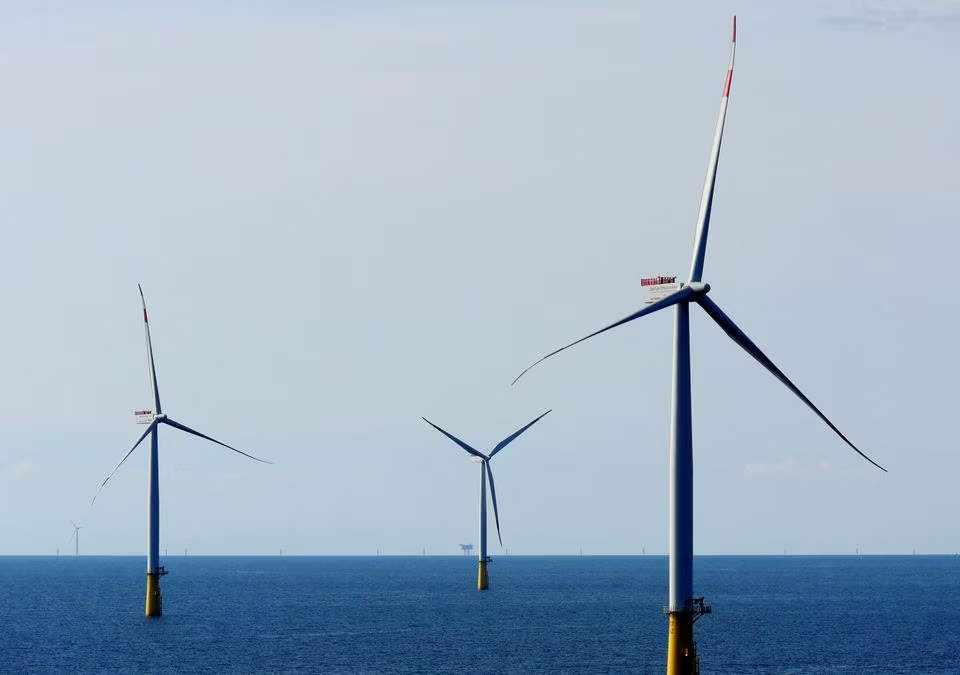The Resilient and Inclusive Supply-chain Enhancement, known as the RISE initiative, will focus on assisting emerging markets and developing countries in expanding their clean-energy product manufacturing and increasing their involvement in the minerals industry.
The World Bank, in partnership with Japan, and joined by Italy, the Republic of Korea, Canada, and the United Kingdom, has launched an initiative aimed at addressing the dual challenges of job creation and climate change.
The Resilient and Inclusive Supply-chain Enhancement, known as the RISE initiative, will focus on assisting emerging markets and developing countries in expanding their clean-energy product manufacturing and increasing their involvement in the minerals industry.
This effort is expected to stimulate economic growth and generate quality local jobs, ultimately contributing to poverty alleviation.
The RISE initiative has garnered substantial financial support from Japan, Canada, Italy, the Republic of Korea, and the United Kingdom, with an initial total contribution exceeding USD 40 million. Further contributions from additional donors are anticipated.
The announcement of this transformative partnership took place at the 2023 World Bank-International Monetary Fund Annual Meetings in Marrakech.
Japanese Finance Minister Suzuki Shunichi and World Bank President Ajay Banga co-hosted the launch event.
Representatives from prospective recipient countries, Chile and India, underlined the significance of the RISE initiative in their own development agendas.
World Bank President Ajay Banga expressed his enthusiasm for the initiative, said, “These are exactly the kinds of initiatives we need right now. This partnership will give developing countries the promise of a brighter future, one with a healthy economy and a livable planet. Countries will have new economic opportunities in clean energy and minerals industries; leading to jobs that help them build better lives for themselves and their families.”
The ongoing global shift toward clean energy is anticipated to create a trillion-dollar market with tens of millions of jobs, spanning the mineral value chains.
This presents a unique opportunity for emerging markets and developing countries to bolster their manufacturing capabilities, stimulate employment growth, and foster long-term economic development.
Japan, one of the principal contributors to the RISE initiative, has pledged a total of USD 25 million to support the sustainable development of low- and middle-income countries and diversify the supply chain for clean energy products.
Japan’s Minister of Finance, Suzuki Shunichi, emphasized the nation’s dedication to advancing this initiative in collaboration with various stakeholders.
Shunichi said, “Japan plans to contribute a total of USD 25 million to RISE to support the sustainable development of low- and middle-income countries and supply chain diversification of clean energy products. We will steadfastly advance this initiative in close cooperation with a diverse set of stakeholders,”
Canada’s Deputy Prime Minister and Minister of Finance, Chrystia Freeland, underscored the importance of international collaboration in accelerating economic growth in low- and middle-income countries while strengthening the supply chains for clean energy and critical minerals.
“Our clean economies will be stronger when we work together. Canada is proud to contribute to the RISE partnership, which will help accelerate important economic growth in low- and middle-income countries–while also strengthening our essential shared clean energy and critical minerals supply chains,” said Freeland.
Italy’s Minister of Economy and Finance, Giancarlo Giorgetti, highlighted the significant growth opportunities offered by the clean energy transition for developing countries, particularly in Africa. Italy is committed to supporting the RISE initiative under the Italian G7 Presidency in 2024.
Giorgetti stated “The clean energy transition represents a unique opportunity of sustainable growth for developing countries and for Africa in particular. The RISE partnership will increase value addition to mineral production, thus strengthening the role of those countries in the global supply chains, with high economic and social returns. Italy will contribute to RISE and will support its implementation in 2024, under the Italian G7 Presidency.”
Republic of Korea’s Deputy Prime Minister and Minister of Economy and Finance, Choo Kyungho, stressed that the RISE program will create additional value in the midstream and downstream processes, opening up new growth prospects for developing countries.
“The RISE program will create additional value by playing key roles in the midstream and downstream processes, and lead to new growth opportunities for developing countries,” said Kyungho.
Chancellor of the Exchequer of the United Kingdom, Jeremy Hunt, emphasized the importance of collaborative efforts to attract more investments into low- and middle-income countries in order to promote a greener future with global benefits.
“The UK is proud to join the RISE Partnership and support its mission to bring more investment into low- and middle-income countries. A greener future will have benefits across the globe, and we will best achieve this by working together”, said Hunt.
The RISE partnership aims to build resilient economies and foster sustainable and diversified global mineral value chains, which are vital in the battle against climate change.
Additionally, by reinforcing environmental policies, social standards, and good governance, the program seeks to remove barriers to private and public investments in critical minerals, clean-energy manufacturing, and associated infrastructure.
The RISE initiative is a significant step toward addressing the challenges of job creation and environmental sustainability in developing countries.

